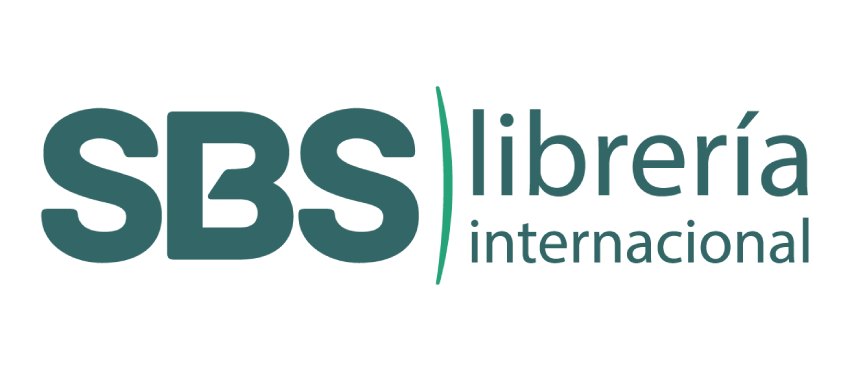Eres docente de inglés docente con amplia trayectoria o estás dando tus primeros pasos en este apasionante mundo, si es así, seguramente te has hecho las siguientes preguntas:
Te invitamos a participar y vivir una experiencia donde la creatividad, la innovación y la motivación serán las protagonistas. El séptimo Congreso de Profesores de Inglés del Centro de Idiomas de la UCSP ha sido diseñado especialmente para crecer, innovar y brindar a tus estudiantes experiencias de aprendizaje más dinámicas, efectivas y significativas.
Durante este día productivo de trabajo, nos enfocaremos en fortalecer la enseñanza del inglés a través de metodologías activas, estrategias efectivas y herramientas digitales accesibles, que te permitirán diseñar clases verdaderamente participativas, comunicativas y centradas en el estudiante.
Recuerda que los docentes no solo enseñamos un idioma: inspiramos confianza, abrimos puertas y transformamos vidas.
¡Te esperamos para construir juntos una nueva forma de enseñar inglés!
Docentes, coordinadores y directores de inglés pertenecientes a universidades, institutos, academias, colegios y público en general.
SESSION 1:
Effective Strategies for ELT: A Toolkit for learning
As teachers, we are always trying to use activities adapted to the new changes of the educational landscape. In the process, though, we find traditional tasks that are still effective and new trends that promise to engage our students. Therefore, we always wonder, how do Do we choose what is best for our students? Are these strategies useful for learning beyond the classroom boundaries?
In this session, we will explore a toolkit designed to empower our students and boost their autonomy. We will dive into the most practical, research-backed approaches and their foundations considering ways to equip our students with essential life competencies through our English lessons.
SESSION 2:
Teaching in the Age of AI: Opportunities and Inequalities
This presentation examines how artificial intelligence is transforming education, highlighting both its potential and its challenges. AI is helping teachers save time, personalise learning, and expand access to resources, yet it also raises concerns about inequality, teacher autonomy, and student engagement. While some schools are advancing quickly with training and clear strategies, others, especially those serving disadvantaged communities, risk being left behind. The talk will explore how teachers can use AI responsibly, address issues of bias and access, and ensure that technology becomes a tool for inclusion rather than division in English classrooms.
SESSION 3:
Designing for Success: Integrated Learning and Assessment Strategies
Integrated Learning & Assessment (ILA) brings teaching and assessment together to support students’ progress in real time. Instead of separating testing from learning, ILA makes assessment part of everyday classroom practice, giving teachers useful insights and students meaningful feedback. This session will share practical ways English teachers can use ILA to enhance learning and engagement.
SESSION 4:
Creative Tech Tools for Meaningful Formative Assessment
This session will showcase how digital tools can reimagine formative assessment as an engaging, creative, and empowering experience for students. Participants will explore practical ways to integrate platforms such as Mentimeter, Padlet, Quizizz, and Edpuzzle to spark motivation, track progress, and deliver instant feedback. Through concrete classroom examples, the session will demonstrate how to make assessment more dynamic, inclusive, and learner-centred—ensuring teachers leave with strategies they can immediately apply to inspire their students.
SESSION 5:
Artificial Intelligence in Action: Enhancing Language Learning Experiences
This session explores how Artificial Intelligence can be integrated into English language teaching to create more engaging, personalised, and effective learning experiences. We will examine practical classroom applications of AI tools, from language practice and feedback to creative activities that boost motivation. Participants will discover how AI can complement traditional methodologies, support learner autonomy, and open new possibilities for interaction and assessment. The session aims to provide teachers with concrete strategies and resources to enhance their practice in the digital age.
Indira León

An experienced English instructor with 20+ years teaching all CEFR levels, Indira León has seen the steps English students take from the very beginning in their learning process until they get international certifications.
Andrés López



He is an ELT professional with over ten years of experience in bilingual education, curriculum design, and academic leadership. He holds a degree in Modern Languages from Universidad del Quindío and a Master’s in Cultural Studies from Pontificia Universidad Javeriana in Bogotá. He is currently the Professional Learning & Development Consultant for Cambridge University Press & Assessment in Colombia, supporting teacher development and the advancement of English language teaching practices.
Diego Quintanilla



He holds a Cambridge CELTA and DELTA certificate, he is also a certified Cambridge Speaking Examiner from levels A2 to C2. With over a decade of experience in international exam preparation, including IELTS. He is a specialist in high-impact strategies grounded in student-centered methodology and has extensive training in distance teaching methodologies.
Jesús Lima



Certified in Cambridge Teacher Trainer and Exam Trainer and in Train the Trainer, he is a specialist in international examinations such as TOEFL and IELTS. He has over 15 years of teaching experience in leading universities in Arequipa.
1 día
Auditorio D-101 – Campus San Lázaro.
De 8:30 a 15:00 hrs
S/ 89.00
Pronto pago: S/ 79.00 hasta el 05 de octubre.
Consulta por inscripciones grupales.
*Incluye certificación digital.
* Si mantienes deuda con la San Pablo, por cualquier servicio, no podrás matricularte en el Centro de Idiomas
Organiza:
Auspiciadores:






Puede realizar sus pagos en efectivo o con las siguientes tarjetas:
| Activity | Time |
|---|---|
| Registration | 8:30 – 9:00 |
| Opening remarks | 9:00 – 9:05 |
| Session 1 | 9:10 – 10:10 |
| BREAK | 10:10 – 10:20 |
| Session 2 | 10:20 – 11:20 |
| Coffee Break & Book exhibition | 11:20 – 11:50 |
| Session 3 | 11:50 – 12:50 |
| BREAK | 12:50 – 1:00 |
| Session 4 | 1:00 – 1:45 |
| Session 5 | 1:45 – 2:30 |
| Raffle and closing | 2:30 – 3:00 |
Asesor Educativo
Daniel Lajo
Teléfono
939 996 589
Correo
djlajo@ucsp.edu.pe
Eres docente de inglés docente con amplia trayectoria o estás dando tus primeros pasos en este apasionante mundo, si es así, seguramente te has hecho las siguientes preguntas:
Te invitamos a participar y vivir una experiencia donde la creatividad, la innovación y la motivación serán las protagonistas. El séptimo Congreso de Profesores de Inglés del Centro de Idiomas de la UCSP ha sido diseñado especialmente para crecer, innovar y brindar a tus estudiantes experiencias de aprendizaje más dinámicas, efectivas y significativas.
Durante este día productivo de trabajo, nos enfocaremos en fortalecer la enseñanza del inglés a través de metodologías activas, estrategias efectivas y herramientas digitales accesibles, que te permitirán diseñar clases verdaderamente participativas, comunicativas y centradas en el estudiante.
Recuerda que los docentes no solo enseñamos un idioma: inspiramos confianza, abrimos puertas y transformamos vidas.
¡Te esperamos para construir juntos una nueva forma de enseñar inglés!
Docentes, coordinadores y directores de inglés pertenecientes a universidades, institutos, academias, colegios y público en general.
SESSION 1:
Effective Strategies for ELT: A Toolkit for learning
As teachers, we are always trying to use activities adapted to the new changes of the educational landscape. In the process, though, we find traditional tasks that are still effective and new trends that promise to engage our students. Therefore, we always wonder, how do Do we choose what is best for our students? Are these strategies useful for learning beyond the classroom boundaries?
In this session, we will explore a toolkit designed to empower our students and boost their autonomy. We will dive into the most practical, research-backed approaches and their foundations considering ways to equip our students with essential life competencies through our English lessons.
SESSION 2:
Teaching in the Age of AI: Opportunities and Inequalities
This presentation examines how artificial intelligence is transforming education, highlighting both its potential and its challenges. AI is helping teachers save time, personalise learning, and expand access to resources, yet it also raises concerns about inequality, teacher autonomy, and student engagement. While some schools are advancing quickly with training and clear strategies, others, especially those serving disadvantaged communities, risk being left behind. The talk will explore how teachers can use AI responsibly, address issues of bias and access, and ensure that technology becomes a tool for inclusion rather than division in English classrooms.
SESSION 3:
Designing for Success: Integrated Learning and Assessment Strategies
Integrated Learning & Assessment (ILA) brings teaching and assessment together to support students’ progress in real time. Instead of separating testing from learning, ILA makes assessment part of everyday classroom practice, giving teachers useful insights and students meaningful feedback. This session will share practical ways English teachers can use ILA to enhance learning and engagement.
SESSION 4:
Creative Tech Tools for Meaningful Formative Assessment
This session will showcase how digital tools can reimagine formative assessment as an engaging, creative, and empowering experience for students. Participants will explore practical ways to integrate platforms such as Mentimeter, Padlet, Quizizz, and Edpuzzle to spark motivation, track progress, and deliver instant feedback. Through concrete classroom examples, the session will demonstrate how to make assessment more dynamic, inclusive, and learner-centred—ensuring teachers leave with strategies they can immediately apply to inspire their students.
SESSION 5:
Artificial Intelligence in Action: Enhancing Language Learning Experiences
This session explores how Artificial Intelligence can be integrated into English language teaching to create more engaging, personalised, and effective learning experiences. We will examine practical classroom applications of AI tools, from language practice and feedback to creative activities that boost motivation. Participants will discover how AI can complement traditional methodologies, support learner autonomy, and open new possibilities for interaction and assessment. The session aims to provide teachers with concrete strategies and resources to enhance their practice in the digital age.
Indira León



An experienced English instructor with 20+ years teaching all CEFR levels, Indira León has seen the steps English students take from the very beginning in their learning process until they get international certifications.
Andrés López



He is an ELT professional with over ten years of experience in bilingual education, curriculum design, and academic leadership. He holds a degree in Modern Languages from Universidad del Quindío and a Master’s in Cultural Studies from Pontificia Universidad Javeriana in Bogotá. He is currently the Professional Learning & Development Consultant for Cambridge University Press & Assessment in Colombia, supporting teacher development and the advancement of English language teaching practices.
Diego Quintanilla



He holds a Cambridge CELTA and DELTA certificate, he is also a certified Cambridge Speaking Examiner from levels A2 to C2. With over a decade of experience in international exam preparation, including IELTS. He is a specialist in high-impact strategies grounded in student-centered methodology and has extensive training in distance teaching methodologies.
Jesús Lima



Certified in Cambridge Teacher Trainer and Exam Trainer and in Train the Trainer, he is a specialist in international examinations such as TOEFL and IELTS. He has over 15 years of teaching experience in leading universities in Arequipa.
1 día
Auditorio D-101 – Campus San Lázaro.
De 8:30 a 15:00 hrs
S/ 89.00
Pronto pago: S/ 79.00 hasta el 05 de octubre.
Consulta por inscripciones grupales.
*Incluye certificación digital.
* Si mantienes deuda con la San Pablo, por cualquier servicio, no podrás matricularte en el Centro de Idiomas
Organiza:
Auspiciadores:






Puede realizar sus pagos en efectivo o con las siguientes tarjetas:
| Activity | Time |
|---|---|
| Registration | 8:30 – 9:00 |
| Opening remarks | 9:00 – 9:05 |
| Session 1 | 9:10 – 10:10 |
| BREAK | 10:10 – 10:20 |
| Session 2 | 10:20 – 11:20 |
| Coffee Break & Book exhibition | 11:20 – 11:50 |
| Session 3 | 11:50 – 12:50 |
| BREAK | 12:50 – 1:00 |
| Session 4 | 1:00 – 1:45 |
| Session 5 | 1:45 – 2:30 |
| Raffle and closing | 2:30 – 3:00 |
Asesor Educativo
Daniel Lajo
Teléfono
939 996 589
Correo
djlajo@ucsp.edu.pe
Si te interesa este programa puedes contactarte con nosotros de Lunes a Viernes de 8:00 a 18:00 h.


Campus Sucre - Av. Salaverry 301, Tercer piso
COPYRIGHT © 2023 Universidad Católica San Pablo - RUC: 20327998413